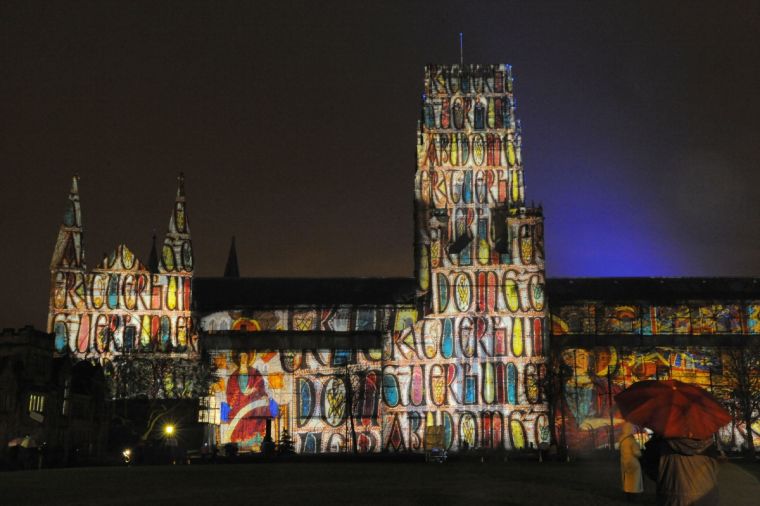Cathedrals in crisis? Three ways we could support their growing ministry

Speculation has been rumbling on in recent months about the health of English Cathedrals. Crises in finances and management at several high-profile Cathedrals have prompted the founding of a task group to look at their viability.
Meanwhile today, Coventry Cathedral is officially launching a fundraising appeal. The Archbishop of Canterbury, who used to work there, is playing his part in drawing attention to the parlous state of its finances. Coventry currently has a £100,000 annual deficit.
Cathedrals are integral parts of their communities with growing congregations, and a vital ministry to the cities in which they find themselves. Here are some ways they could be put on a more sustainable footing...
1) Find a new funding model
This sounds obvious, but it's tricky to get right. Cathedrals in thriving tourist areas can charge for entry, but it isn't without controversy – the idea of paying a fee to get into a church leaves many with a bad taste in the mouth. However, it is a regular and vital stream of income for Cathedrals such as St Paul's in London.
By contrast, the glorious Durham Cathedral is free to enter, but makes only £150,000 per year in donations – which only covers its costs for two weeks.
There are other options than charging for entry, though. One of them, which works in other countries is state support. There are differing models in France, Germany and elsewhere, but many European nations do give statutory funding support to their ancient Cathedrals. This has been done on an ad hoc basis by the UK government, but a more permanent arrangement is one funding option.
Others would include using some Cathedral owned land for redevelopment (which is what Guildford Cathedral wants to do), meaning that housing or business space could be developed nearby to Cathedrals. If it was sensitively done, then it could provide a cash boost and a good stream of income. This won't work in every case though – planning approval will be very hard to gain in certain cities.
2) Become a cultural hub
Cathedrals have been at the centre of their communities for hundreds of years. They have a long history of providing more than a programme of worship and prayer. Currently, Cathedrals host a range of concerts, meetings, events and art installations as well as the obligatory cafes and shops.
Yet, with some imagination, there is more that would be done. Manchester Cathedral has shown initiative and is hosting secular music gigs, following in the footsteps of entrepreneurial London churches. This could provide a much-needed stream of income in beautiful settings with acoustics to match.
There are a number of other opportunities that could be used to monetize the unique spaces that Cathedrals offer without becoming mercenary. The key is to respect the main purpose of the building – worship – while being entrepreneurial and inventive.
3) Invite in other churches
This week Southwark Cathedral hosts a public service for local people affected by the London Bridge terror attack which happened only yards away from its doors. This is a perfect example of the civic role Cathedrals can play. Yet, they could also, with some careful co-ordination, become seen by a City's Christian population as a centre of the community in that town.
Many non-conformist, evangelical and low church Christians will not imagine a Cathedral as their first port of call. The image of beautiful worship carried out according to ancient rites is attractive to many but can be a barrier to some in the wider Christian community who are used to worshipping in a more informal style.
Cathedrals sometimes host ecumenical events, but they should be pushing the boat out and making this a priority. The recent Thy Kingdom Come initiative showed the potential for Cathedrals hosting vibrant worship and prayer events and these could be made more regular.
Churches in a given city could take it in turns to host such events in their own style and invite all the other Christians in the city to attend. As well as the galvanising effect this would have on Christian unity, it would also cement the Cathedral as a place for all Christians, which would in turn help with fundraising efforts.
There are hundreds of other small and large ideas which could help to ensure the survival and thriving of Cathedrals. We should all be keen to play our part – after all, as Nicky Gumbel is fond of saying, empty church buildings are like an empty palace of a long-forgotten king – people walk past and think that the king is dead.











